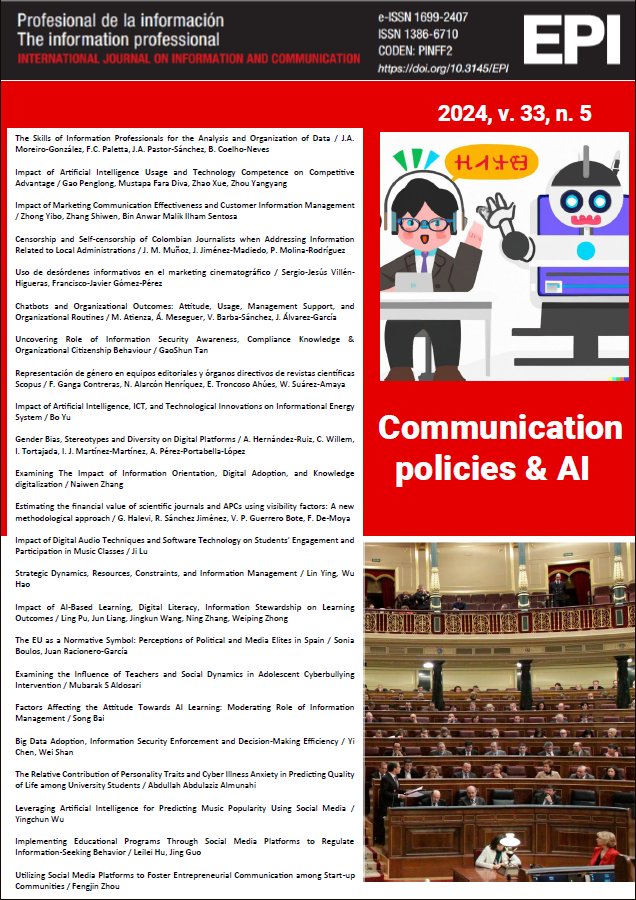Big Data Adoption, Information Security Enforcement and Decision-Making Efficiency
DOI:
https://doi.org/10.3145/epi.2024.ene.0519Palabras clave:
Information Security Enforcement, Big Data Adoption, Decision-Making Efficiency.Resumen
Information security enforcement aims to reflect the organizational practices while ensuring the confidentiality and availability of the relevant information within the organization. Such acts also help make some strategic and efficient decision-making at different levels of the organization. Moreover, by using big data technologies, organizations make decisions more efficiently by allowing them to process and analyze large amounts of information quickly. This study focused on several indicators relating to information security enforcement, big data adoption, and decision-making efficiency by collecting data from eight industries in China. The study developed a concise questionnaire using the Five point Likert scale, for which descriptive and regression analysis were applied. The study results show a significant relationship between information security enforcement, big data adoption and decision-making efficiency. Additionally, the study results revealed the reliability and monitoring of such initiatives like whistleblowing programs, disciplinary employees for security violations, quick investigations, and accountability for infractions, as key indicators of information security enforcement, which also cause an improvement in the decision-making efficiency of the targeted industries. The results further suggest policy implications and recommendations to improve decision-making using information security enforcement and extensive data adoption. A few limitations also discuss the future directions.
Descargas
Descargas
Publicado
Cómo citar
Número
Sección
Licencia
Derechos de autor 2025 Profesional de la información

Esta obra está bajo una licencia internacional Creative Commons Atribución 4.0.
Condiciones de difusión de los artículos una vez son publicados
Los autores pueden publicitar libremente sus artículos en webs, redes sociales y repositorios
Deberán respetarse sin embargo, las siguientes condiciones:
- Solo deberá hacerse pública la versión editorial. Rogamos que no se publiquen preprints, postprints o pruebas de imprenta.
- Junto con esa copia ha de incluirse una mención específica de la publicación en la que ha aparecido el texto, añadiendo además un enlace clicable a la URL: http://revista.profesionaldelainformacion.com
La revista Profesional de la información ofrece los artículos en acceso abierto con una licencia Creative Commons BY.




